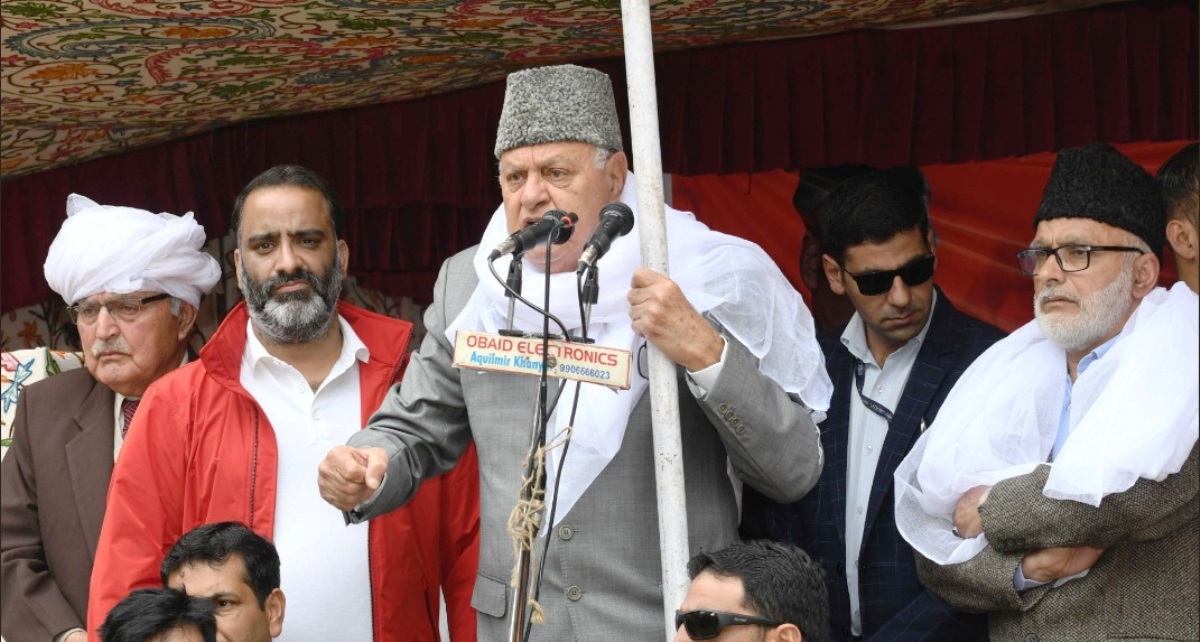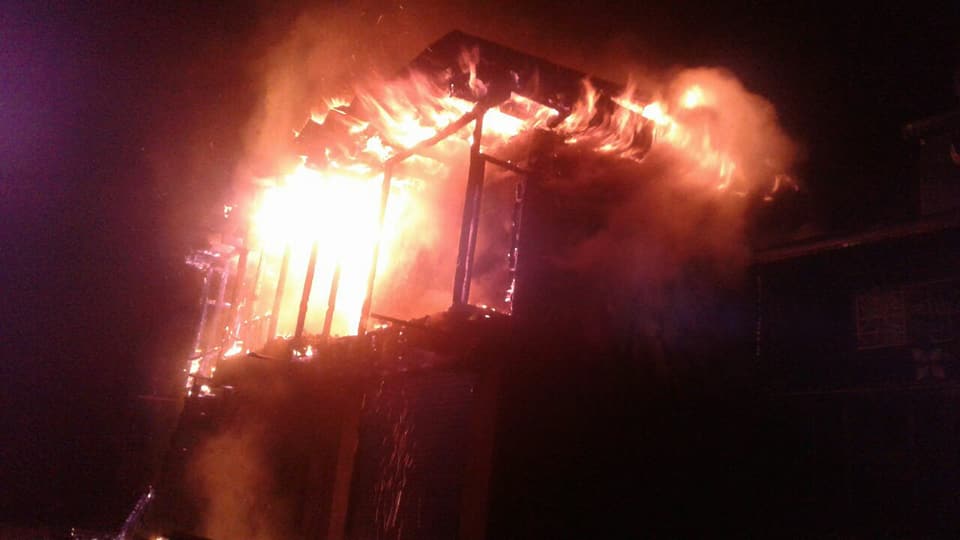Srinagar
Last Friday, a single-judge bench of the Jammu and Kashmir High Court, while rejecting the petition filed by J&K HC Bar Association president Mian Qayoom challenging his detention under the stringent Public Safety Act, observed that a court is not a “proper forum to scrutinise the merits of administrative decision to detain a person” and that such a detention is not based on proof, The Indian Express reported.
According to a report published by The Indian Express, but two earlier judgments related to the PSA, passed by another single-judge bench of the same High Court, had quashed administrative orders, underlining that preventive detention “cannot be used as an instrument to keep a person in perpetual custody without trial”.
Incidentally, Justice Sanjeev Kumar, while scrutinising the detention orders which he subsequently quashed, said though preventive detention involves the detaining of a person without trial in order to prevent him from committing certain types of offences, such “detention cannot be made a substitute for the ordinary law and absolve the investigating authorities”.
This was in stark contrast to observations made by Justice Tashi Rabstan who last Friday said that the executive has “necessary powers to order preventive detention” and the “subjective satisfaction of a detaining authority to detain a person or not, is not open to objective assessment by a court”.
Justice Rabstan also made three other broad observations — that a High Court does not sit in appeal over the decision of the detaining authority and cannot substitute its own opinion over that of the detaining authority; that the courts do not even go into the question whether the facts mentioned in grounds of detention are correct or false; and that the High Court “cannot interfere on the ground that in view of the fact that times have changed, further detention would be unjustified”.
But Justice Kumar, in orders passed on December 27 and December 31 last year, held a different view on two separate habeas corpus petitions.
In the habeas corpus petition filed by the family of the detained Tariq Ahmed Parray, Justice Kumar, while quashing the detention order passed by the Baramulla District Magistrate, observed that “preventive detention cannot be resorted to when sufficient remedies are available under general laws of the land for any omission or commission under such laws, the Supreme Court observed”.
Citing SC orders on the issue, Justice Kumar reiterated that preventive detention of a person “by a State after branding him a ‘goonda’ merely because the normal legal process is ineffective and time-consuming in ‘curbing the evil he spreads’, is illegal”.
These observations had come in the backdrop of arguments made by Parray’s family that the allegations made in the grounds of detention were vague, non-existent and that the government had not spelt out any compelling reasons to pass the detention order.
A similar argument was put forward in Qayoom’s case. But Justice Rabstan said that a High Court has “limited scope to scrutinising whether detention order has been passed on the material placed before it” and “it cannot go further and examine sufficiency of material”.
“This court can only examine grounds disclosed by the government in order to see whether they are relevant to the object which the legislation has in view, that is, to prevent detenu from engaging in activities prejudicial to security of the State or maintenance of public order,” The Indian Express quoted Justice Rabstan as having said.
In the habeas corpus petition filed by the family of the detained Asif Ahmed Bhat, Justice Kumar said Bhat’s defence was that the detention on “the selfsame grounds on which earlier detention order had been passed and subsequently quashed by this Court, was sheer abuse of police power by the State”.
It was pointed out that the detention order of September 18, 2018 was quashed by the High Court on April 17, 2019. But a fresh detention order was passed on April 30, 2019. “What prompted the Detaining Authority to pass a fresh order of detention, impugned in the petition, is anybody’s guess. There is, however, bald assertion in the grounds of detention suggesting that normal law of the land has not deterred the detenu from indulging in subversive activities prejudicial to the maintenance of public order. There is absolutely no mention in the grounds of the detention with regard to any activity the detenu has indulged in or continued with after quashment of his earlier detention order dated 17.04.2019,” the report quoted Justice Kumar as saying.
“The fresh order of detention on the selfsame grounds is vitiated in the law and, therefore, cannot sustain… It is, thus, seen that the detaining authority while arriving at subjective satisfaction has not only taken into consideration the future prospectus of the detenu indulging in similar activities but has also taken into consideration the grounds on which the earlier order of detention dated 18.09.2018 had been passed. The judgment referred to above lends support to the contention of the learned counsel for the petitioner that the detention order without fresh material, is not sustainable,” The Indian Express quoted Justice Kumar as having said.
A similar argument was put forward by Qayoom. He had argued that the government relied upon FIRs registered in 2008 and 2010, for which he had already been detained in 2010. Qayoom also said such material cannot be relied upon for repeating the order of detention.
“Even one prejudicial act be treated as sufficient for forming requisite satisfaction for detaining a person. The power of preventive detention is a precautionary power exercised in reasonable anticipation. It may or may not relate to offence. It is not a parallel proceeding. It does not overlap with prosecution even if it relies on certain facts for which the prosecution may be launched,” The Indian Express quoted Justice Rabstan as having said















